About Titan Network
Titan Network is a decentralized, blockchain-based platform designed to provide a high-performance infrastructure for a wide range of decentralized applications (dApps) and blockchain projects. The Titan Network aims to solve many of the scalability, security, and usability issues faced by other blockchain platforms by offering a unique approach to consensus, storage, and transaction processing.
Here’s a detailed look at Titan Network:
1. Overview of Titan Network
Titan Network is primarily focused on scalability, speed, and low transaction costs, offering a blockchain solution that aims to provide high throughput for decentralized applications. Its goal is to build a fast, secure, and low-latency environment for developers to deploy their applications, particularly in industries like finance, gaming, DeFi, and enterprise solutions.
2. Key Features of Titan Network
- High Scalability: Titan Network aims to provide high scalability through its unique consensus mechanisms and architecture. It uses advanced sharding techniques to divide the network into smaller pieces (shards) to process transactions in parallel, reducing bottlenecks and enhancing throughput.
- Low Transaction Fees: A core advantage of Titan Network is its ability to provide low transaction fees. This makes it an attractive option for applications that require frequent, small transactions, like micropayments in gaming, DeFi, or IoT (Internet of Things) applications.
- Fast Transactions: The network is designed for high transaction speeds (low latency), which is crucial for real-time applications, including gaming, finance, and other sectors requiring instantaneous transaction processing.
- Decentralization and Security: Titan Network uses proof-of-stake (PoS) and delegated proof-of-stake (DPoS) mechanisms to ensure that the network is secure, decentralized, and resistant to attacks. Validators and delegates participate in securing the network by staking tokens.
- Interoperability: Titan Network supports cross-chain interoperability, meaning it can interact with other blockchains and assets. This allows dApps on Titan to access services and assets from other blockchains, fostering a more connected decentralized ecosystem.
- Developer-Friendly: The Titan Network offers a variety of developer tools, SDKs, and APIs that make it easier for developers to deploy and manage their decentralized applications on the platform. It also supports smart contracts and offers modular frameworks that can be tailored to specific use cases.
3. Consensus Mechanism
- Proof-of-Stake (PoS): The Titan Network uses a Proof-of-Stake consensus algorithm to validate transactions and secure the network. In PoS, token holders can participate in validating transactions by “staking” their tokens, and validators are selected to propose and validate new blocks based on the number of tokens they hold and are willing to “stake.”
- Delegated Proof-of-Stake (DPoS): In addition to PoS, Titan Network also utilizes delegated proof-of-stake. This hybrid approach allows token holders to vote for a group of delegates who are responsible for validating transactions and managing the network. This model enhances efficiency and scalability by reducing the number of participants in consensus while still maintaining decentralization.
4. Titan Network’s Ecosystem
- Titan Token (TITAN): The native token of the Titan Network is TITAN. This token is used to pay for transaction fees, staking, and governance within the network. Token holders can use TITAN for staking (to participate in the PoS and DPoS systems), as well as to vote on key decisions affecting the network (such as updates to the protocol or changes to the governance structure).
- Smart Contracts: Titan Network supports the creation and execution of smart contracts, which are self-executing contracts where the terms of the agreement are directly written into code. Smart contracts on Titan can be used to automate various processes, from financial transactions to supply chain tracking.
- dApp Development: Titan aims to support the development of decentralized applications (dApps) across a variety of sectors, including finance, gaming, supply chain, and more. Developers can build dApps using the Titan SDKs and APIs, and deploy them with high performance and low latency.
- DeFi Integration: Titan Network supports the DeFi (Decentralized Finance) ecosystem, providing a scalable and efficient infrastructure for DeFi applications. Titan’s low fees and fast transaction times make it a promising platform for decentralized lending, borrowing, and trading.

5. Titan Network’s Use Cases
- Finance and DeFi: Titan Network can be used to build decentralized financial applications, including lending platforms, decentralized exchanges (DEXs), and stablecoins. Its low transaction fees and high scalability are ideal for DeFi services that require fast and affordable transactions.
- Gaming: Titan’s low latency and high throughput make it an attractive platform for blockchain-based games, especially for games that require fast and frequent transactions. It can be used for in-game currency, asset ownership, and tokenized rewards.
- Enterprise Solutions: Titan Network is designed to scale for enterprise applications, enabling businesses to leverage blockchain technology for supply chain management, identity verification, and secure data sharing.
- Supply Chain Management: Titan Network can be used to track and verify the movement of goods and assets within a supply chain. Its ability to provide high scalability and security makes it suitable for ensuring transparency and efficiency in logistics and supply chain operations.
- IoT (Internet of Things): Titan’s blockchain can also be used in IoT applications, where low-cost and high-speed transactions are required for interactions between devices. The ability to scale and handle large volumes of microtransactions makes it an excellent platform for the rapidly growing IoT space.
6. Titan Network vs. Other Blockchain Platforms
While Titan Network shares similarities with other blockchain platforms like Ethereum, Polkadot, and Solana, it differentiates itself through its emphasis on high scalability, low transaction fees, and developer-friendly infrastructure. Here’s how it compares:
- Ethereum: Ethereum is more established but faces issues with scalability, high gas fees, and slower transaction speeds. Titan Network aims to solve these issues through its sharding technology and lower transaction fees.
- Polkadot: Polkadot is known for its interoperability and cross-chain compatibility. Titan also supports interoperability but focuses more on high throughput and low fees for specific use cases like gaming and DeFi.
- Solana: Solana is another high-performance blockchain known for its speed. Titan Network is similar in terms of speed but differentiates itself by focusing on decentralization and scalability through PoS/DPoS and its modular architecture.
7. Titan Network’s Roadmap and Future Plans
- Launch of Mainnet: Titan Network plans to continue improving its infrastructure with a focus on stability, speed, and security. The mainnet launch will be a critical milestone for the network, marking the full transition from testnet to the live blockchain.
- Partnerships and Ecosystem Growth: Titan Network is expected to continue building relationships with other projects in the blockchain space, potentially through partnerships and collaborations to expand its ecosystem and attract more developers and users.
- NFT and Metaverse Integration: As the popularity of NFTs and the metaverse grows, Titan Network is looking to integrate support for these technologies, providing the infrastructure needed to build and trade NFTs with low fees and high performance.

Titan Network aims to solve key issues in the blockchain space by providing a high-performance, scalable, and developer-friendly platform that supports smart contracts, dApps, DeFi, and more. Its low transaction fees, fast transaction processing, and decentralized governance make it an attractive option for developers and businesses looking to leverage blockchain technology for various use cases.
With the growth of decentralized finance, gaming, supply chain management, and other sectors, Titan Network has the potential to become a key player in the blockchain ecosystem, providing the necessary infrastructure for the next generation of decentralized applications.



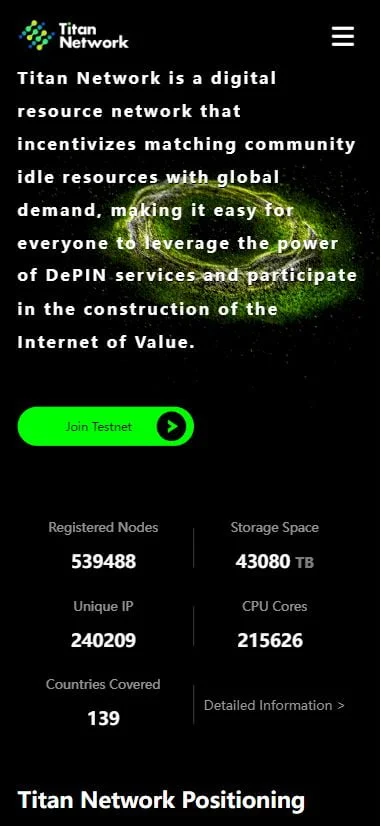
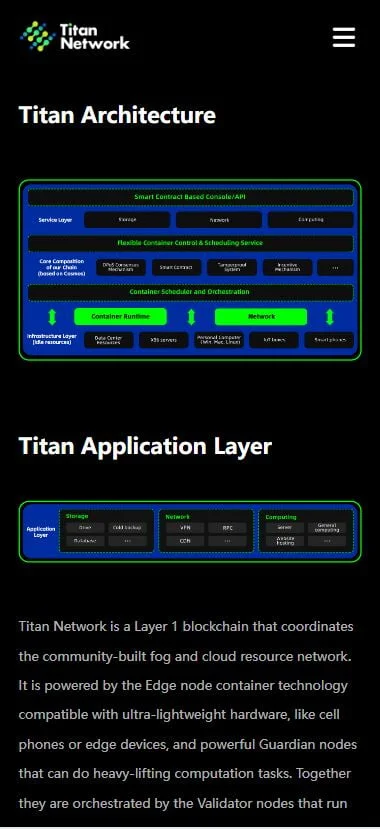
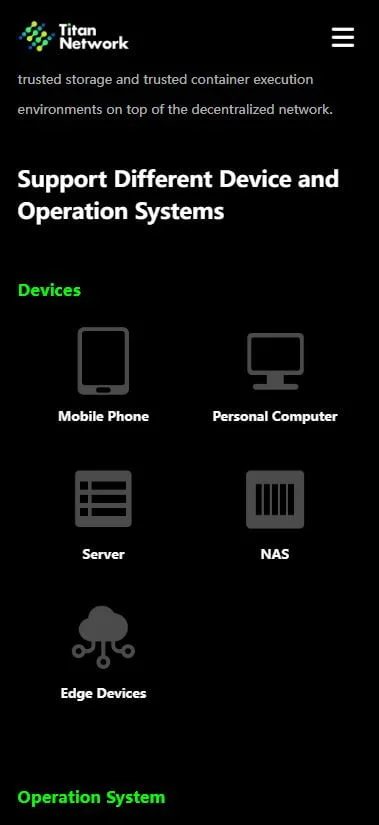
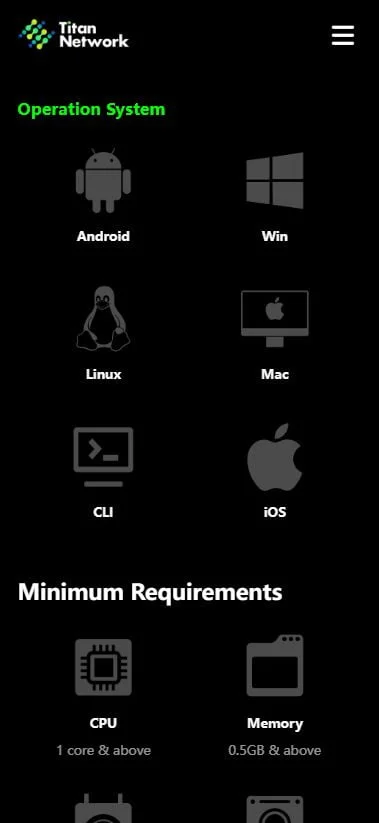
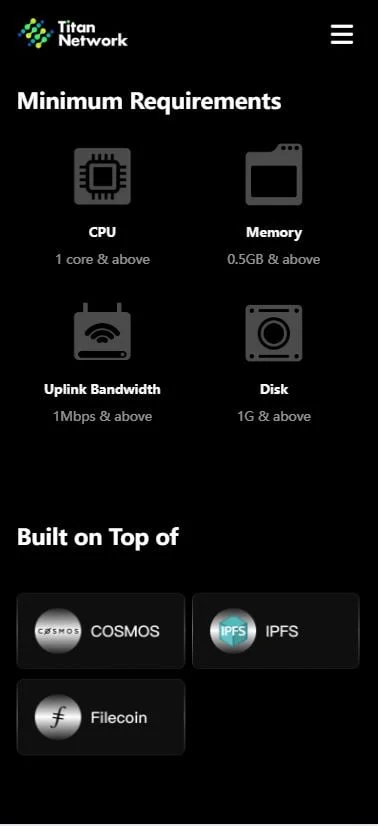
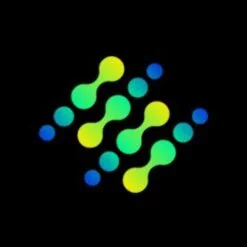






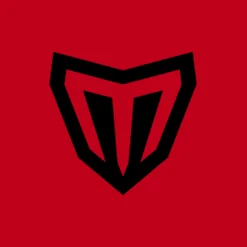
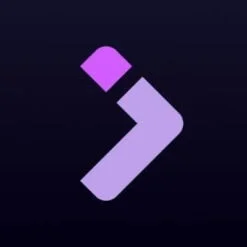






Eyad –
good
cabal jhong –
Good !